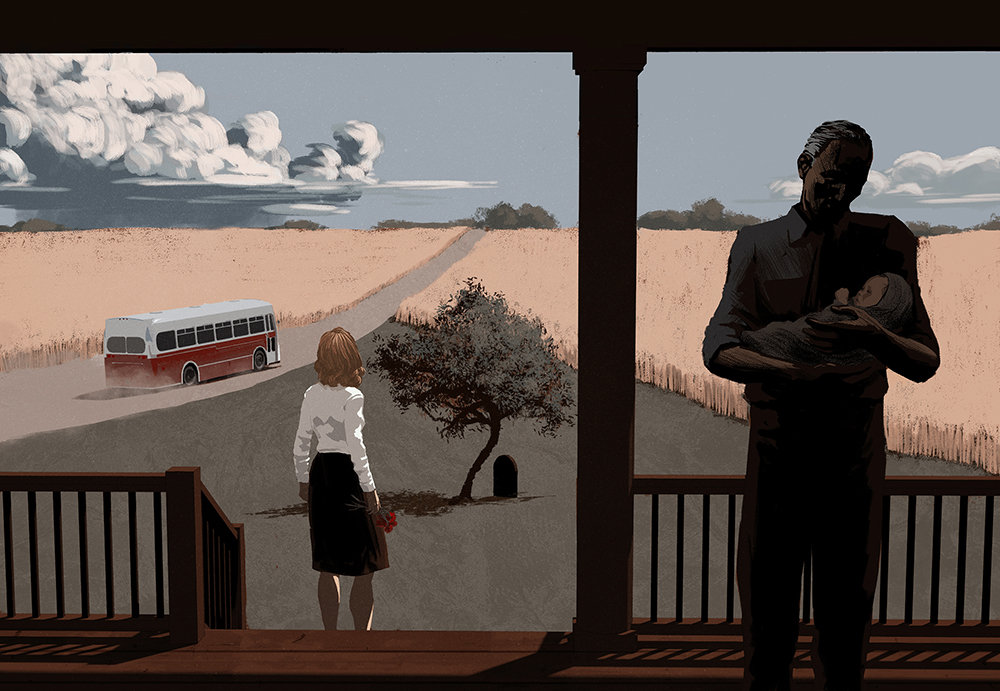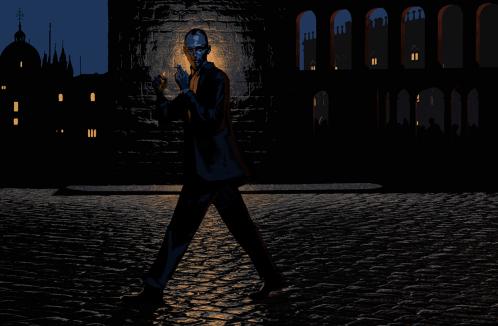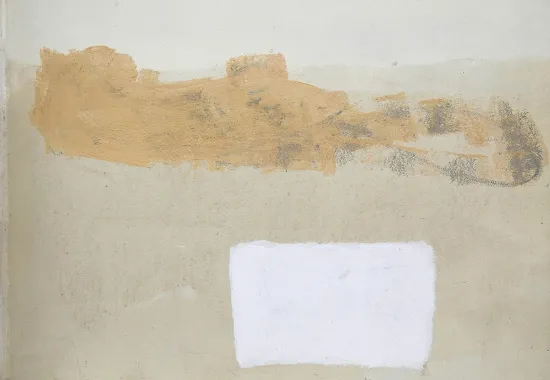Commentary of "Taps"
Jeff Knorr's poem, "Taps" won 3rd place in the 2010 James Hearst Poetry Prize. The poem appears in issue 295.2 of the North American Review.
When I was at Chico State in Northern California in the 80's the poet George Kiethley asked us to write a poem about someone from our childhood. I was young and went straight for the usual suspects—my grandfather who I was close to but had died when I was young, my older brother, my mother, a loving woman whom I treasured, my father. I thought about a few others, including this man who lived in the court at the end of our street. But I hadn’t a clue how to write about him. Just over twenty years later, the poem finally came. As these people do from our childhoods, this man had stayed with me—there was no getting rid of him. He had precisely tapped his way down the sidewalk in the early morning hours of almost every day, even dark winter mornings, to Poor Joe’s bar, and he stumbled back down the street regularly in the evening. He and his wife had careened down our street in their blue Cadillac and, in fact, one afternoon they ripped the open driver’s door right off Burt Amaral’s Mustang. The door exploded off the hinges as Burt leaned in across the front seats, the Caddy swerving past the door as it skidded along the street, a group of us adolescent boys on the porch of my house whooping about what we’d just witnessed.
Despite the entertainment and mystery this man provided all of us on our street, I knew at a pretty young age there was a fair amount of tragedy tangled up in his life. I knew he was a veteran. I knew he drank a lot. I knew he seemed exceptionally unhappy. I knew his sunglasses kept hidden some deep sadness I’d never ever see in his eyes. And even at a young age I knew he must be capable of something, of some kind of love with his wife and how they kept a house in what was a reasonably nice middle class neighborhood in the San Francisco Bay Area. I know now there may not have been a lot of love in the house, but back then I suspected there was.
One afternoon I came home from school and at the end of the street there was a silver van parked in the driveway of the man’s house. After I had been home a while, my mother told me that he had died. Later there were some of us boys playing football in the street and when his body was finally wheeled out to the van we all stopped and had a moment of shock that in fact he really was dead. As the van came down the street we stepped aside, held the football, and felt a sense of loss in the neighborhood. To this day I do not know his name. But his presence on the block was huge, legendary. And right then we knew something had just been changed. And while nobody said it, it was clear to us that he’d drank himself to death.
When the poem finally came out of me, I wanted it to be a tribute of sorts. I wanted to capture that here was this guy that so many people in our neighborhood, especially the adults, had judgments about. But for the boys on the street who saw him, often at his worst, he had become for us something of an icon of our street, an icon of a time, and even a guy we admired. We indeed admired that he was a veteran and we thought his taps were the coolest things ever. And yet, we watched his life unravel and felt the tragedy of it when he died. From this, the poem is both born and offered.
"Taps"
The drunk down the street
wore taps on his black boots,
and each afternoon tapped
a rhythmic slide-and-click step
cool like he was Gene Kelly.
Aviator glasses, pressed blue jeans,
VFW cap creased at the crown
the bill curved with the horizon’s
slight arc, like at the bay of Da Nang
where he must have hoped
a hundred times to head home.
How many ghosts did he put away
each day down at Poor Joe’s?
How many missions did he fly
into the haze of gin?
Rumor had it he was a door gunner
and we boys all made cracks,
doorbell ditched his house
leaping bushes, scattering invisible
when he barked like a stray dog.
Mostly we were scared of him,
his mumbling at us as he stumbled along
the sidewalk while we played
two-hand touch, our glory still ahead of us,
in the air alive as rain.
But the day the silver mortician’s van
parked in his driveway, we all hoped
it was his wife. Finally, when the sheeted body
was gurnied out, the van left us
huddled in the street in silence
as if church had just finished.
We stood, all of us making plans,
listening to her wailing, the cries
drifting into the street, then yelling,
then plates smashing until it was dark
and a jet passed over us.
Dark except for a streetlight,
and quiet except for my brother
tacking flattened bottle caps to the toes of his Keds.
Illustrations by Clay Rodery, an illustrator who lives and works in Brooklyn, New York. ch Clay’s illustrations have been featured in the North American Review, most recently in issue 299.4, Fall 2014.
Recommended
Mercy
Eclipsing
Psychic Numbing








